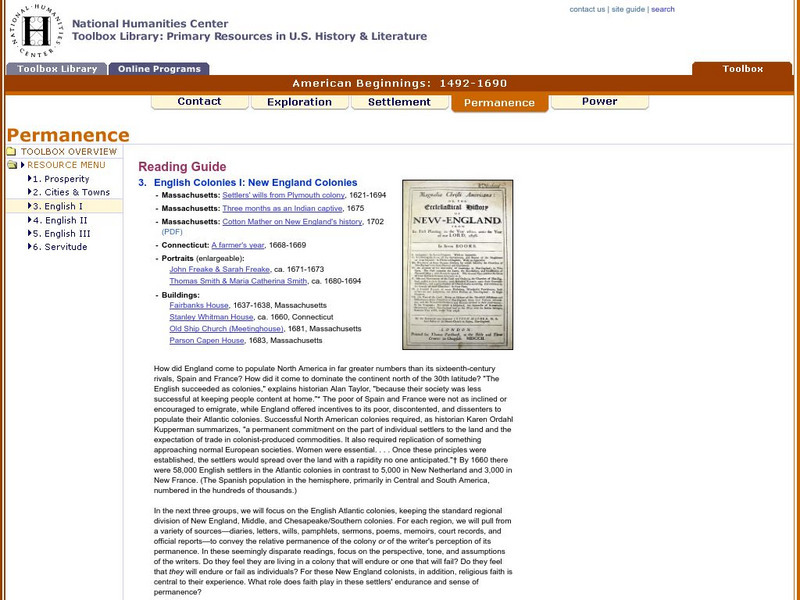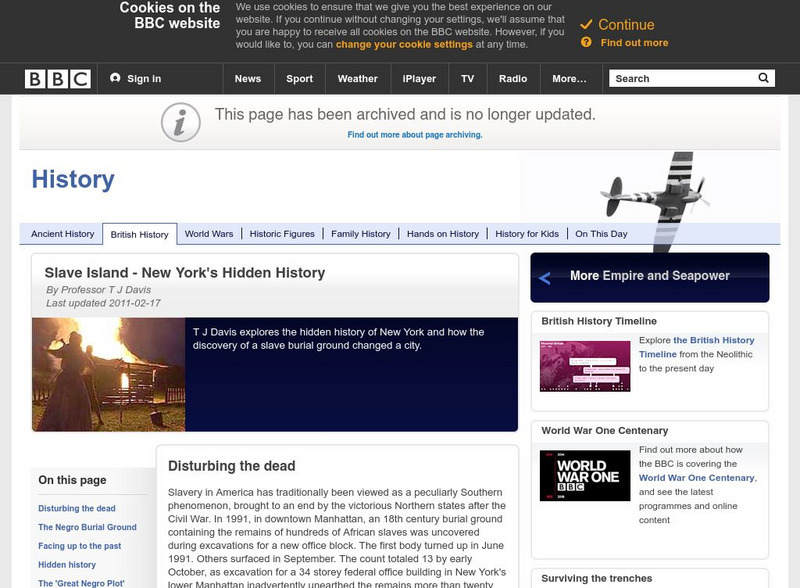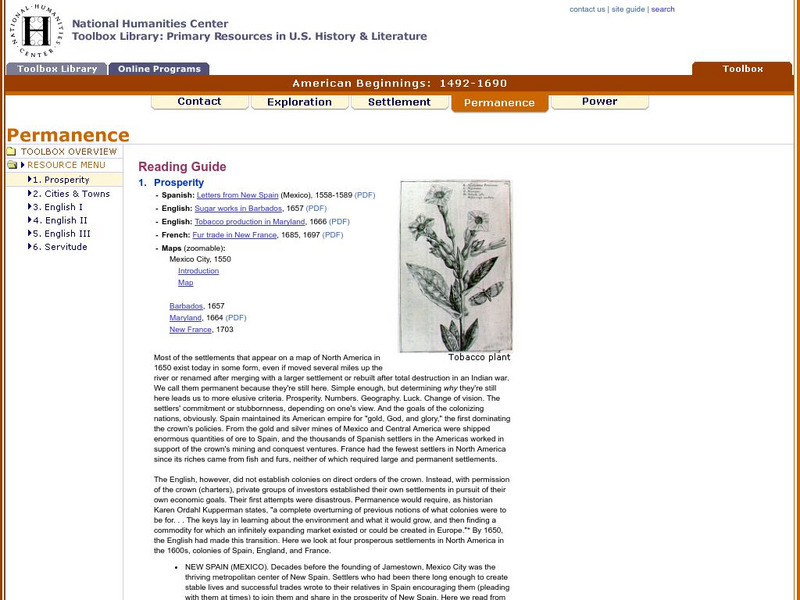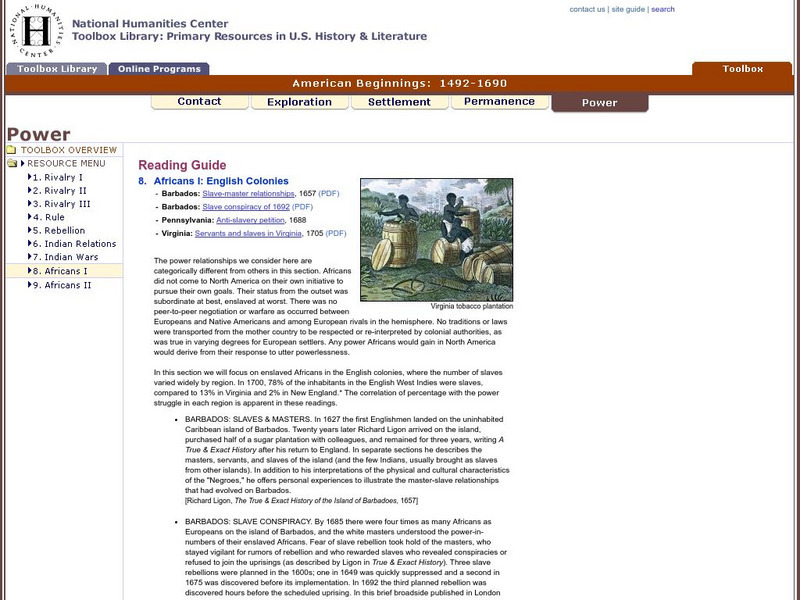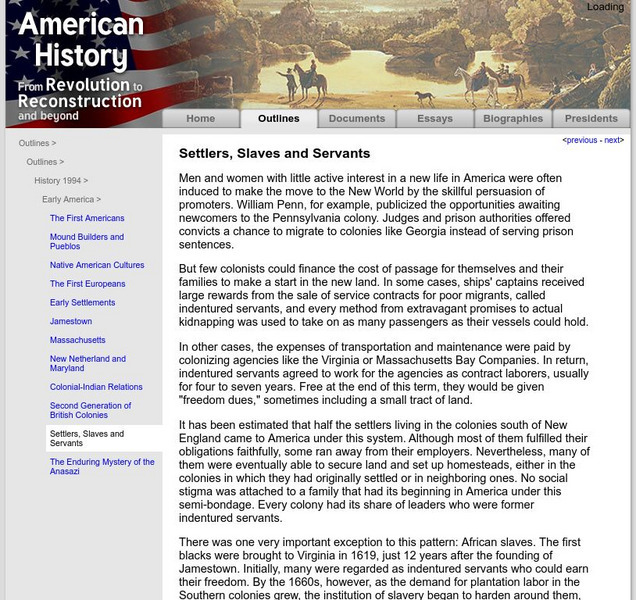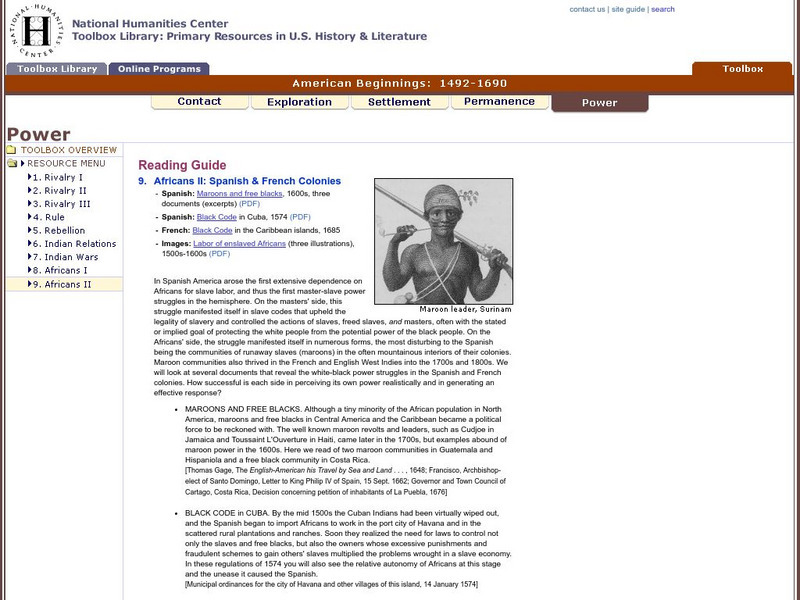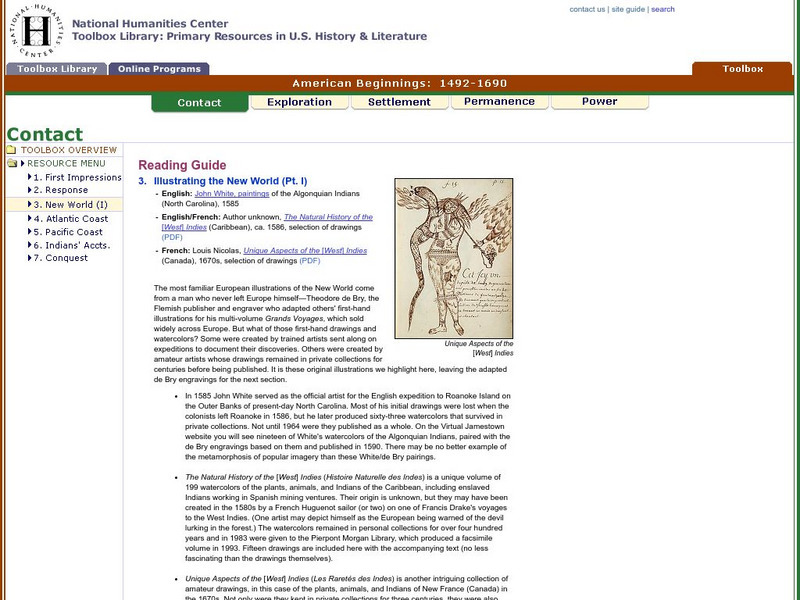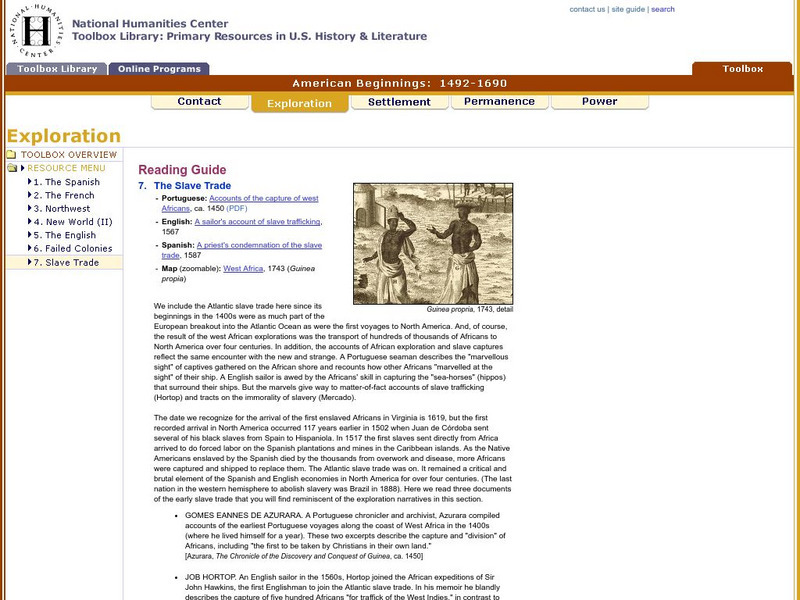Hi, what do you want to do?
Other
Book Review: Becoming America:the Revolution Before 1776
A detailed review by James T. Kloppenberg, constructively criticizing the author's (Jon Butler) thesis that ties between colonial religion and politics are exaggerated.
McGraw Hill
Mc Graw Hill: Colonial Economy and Patterns of Society
Although tied to pages from a specific text, these AP study questions allow anyone to consider aspects of colonial economics. (Answers to some of the questions are located at the following link:...
Khan Academy
Khan Academy: Labor, Slavery, and Caste in the Spanish Colonial System
A self-evaluation using primary sources assesses labor, slavery, and caste in the Spanish colonial system.
National Humanities Center
National Humanities Center: Toolbox Library: Enslaved Peoples, American Beginnings: 1492 1690
Two Spanish accounts of enslaved Indians in the Caribbean and enslaved Africans in Mexico and statements of the difficulty of maintaining slavery and the lurking threat of a slave revolt.
National Humanities Center
National Humanities Center: Toolbox Library: English I, American Beginnings: 1492 1690
Portraits of early New Englanders as well as four buildings from seventeenth-century New England that accompany accounts in those British colonies of struggles, Indian hostilities, and economic success.
BBC
Bbc: Slave Island New York's Hidden History
A fascinating article that examines the discovery in 1991 of a large Negro burial ground in lower Manhatten. The African American cemetery was used during the 18th century. Archived.
National Humanities Center
National Humanities Center: Toolbox Library: Prosperity, American Beginnings: 1492 1690
Four original source accounts, and four related maps, of successful English, French, and Spanish settlements in North America and the Caribbean that explain the qualities of these settlements and their reasons for permanence and prosperity.
National Humanities Center
National Humanities Center: Toolbox Library: Africans I, American Beginnings: 1492 1690
Four accounts of the complex power relationships between slaves and slave holders within English colonies in Barbados, Virginia and Pennsylvania, as well as documents about slave revolts and anti-slavery agitation.
Art Institute of Chicago
Art Institute of Chicago: Art Access: American Art to 1900
Study works of American art from the eighteen and nineteenth centuries. Works in a variety of media, including the decorative arts, are represented as are pieces by some of America's best-known artists: Copley, Church, Homer, and...
CommonLit
Common Lit: Text Sets: The American Colonies
Collection of 14 Grade-Leveled texts (4-11) on the topic "The American Colonies." What was life like for European settlers in the New World? How did American colonies function before the Revolutionary War? Explore life in the...
British Library
British Library: Discovering Literature: Oroonoko: Historical and Political Contexts
As a young woman, Aphra Behn was a spy for Charles II's government in Antwerp and probably in South America. Two decades later, she used these experiences to write Oroonoko, the story of a prince kidnapped from West Africa, enslaved, and...
British Library
British Library: Discovering Literature: The Rise of Consumerism
With the increasing variety in clothes, food, and household items, shopping became an important cultural activity in the 18th century. This article describes buying and selling during this period and explains the connection between many...
PBS
Pbs Learning Media: Primary Source Set: The Colonies: Motivations and Realities
A collection of primary sources to explore the motivations and realities behind life in the American colonies.
Oregon State University
History of Western Philosophy: Bartolome De Las Casas (1484 1566)
Famous for early advocacy for indigenous peoples of America, he attempted to outlaw the econmienda system enjoyed by the Spanish colonists. Included is a time line of his activities.
University of Groningen
American History: Outlines: Settlers, Slaves and Servants
This resource provides a brief overview of how many settlers in the colonies were indentured servants and how the system of indentured servitude tied to slavery.
National Humanities Center
National Humanities Center: Toolbox Library: Africans Ii, American Beginnings: 1492 1690
Three illustrations and five documents about slave codes, master-slave power dynamics, and free blacks within French and Spanish settlements of the Caribbean.
National Humanities Center
National Humanities Center: Toolbox Library: New World: Part I: American Beginnings: 1492 1690
A variety of paintings and drawings that display European images of their first encounters with the land, plants, animals, and native peoples of the western hemisphere. With questions for discussion.
National Humanities Center
National Humanities Center: Toolbox Library: Slave Trade, American Beginnings: 1492 1690
A West African map and three accounts of the development of slave acquisition display the process and the brutality of the Atlantic slave trade.
Curated OER
Virginia Tobacco Plantation
Four accounts of the complex power relationships between slaves and slave holders within English colonies in Barbados, Virginia and Pennsylvania, as well as documents about slave revolts and anti-slavery agitation.









